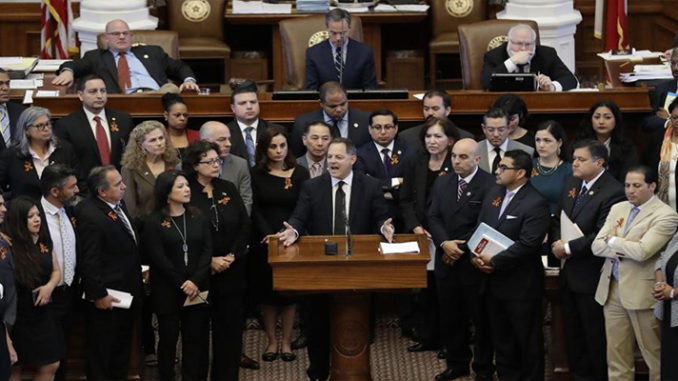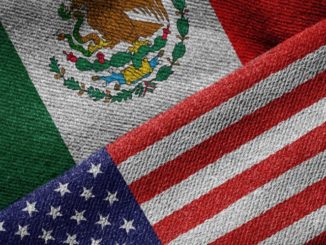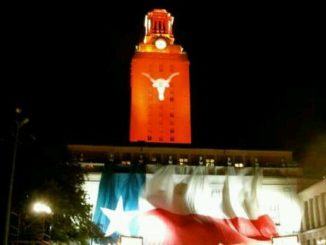
by THE MONITOR, EDITORIAL BOARD
After what has been described as an excruciatingly emotional, and at times tearful, 16-hour debate over the anti-sanctuary cities bill in the Texas House of Representatives on Wednesday and into Thursday morning, lawmakers approved the controversial measure. We decry that action.
If it becomes law, this measure, as approved in the House, would allow police to question the immigration status of anyone being detained by police — a lower legal standard than arrest.
As Bishop Daniel E. Flores of the Brownsville Diocese said, this legislation threatens the safety of immigrant communities because there will most certainly be those here who are afraid to reach out to police for fear of being asked to present documents showing their immigration status.
“Our communities will be less safe now to the extent the state ties the hands of local law enforcement, keeping them from using good judgment while attending to their local duties. To be an immigrant is not a criminal act, but now the immigrant community will be more afraid to report criminal activity in our neighborhoods,” Flores said in a statement issued by the Texas Catholic Conference of Bishops opposing the bill, SB 4.
Terri Burke, executive director of the ACLU of Texas, echoed those sentiments Thursday, telling media: “It’s going to jeopardize our public safety and the number of crimes that will go unreported.”
Time and again, local law enforcement have told us of the importance of maintaining open lines of communication with the public; of having the public’s trust so that people willingly will come forward and give information on cases, or seek help when victimized. That trust and openness must continue in our region, for the sake of all our safety.
This bill now goes back to the Texas Senate for review of the changes made by the House. The Senate has the option to approve the changes or can force the measure into a conference committee so that the two chambers can iron out differences in the language.
But if it passes muster with both chambers, the legislation is expected to be signed by Gov. Greg Abbott, who declared this an emergency measure for this 85th Legislative Session.
If that happens, we fear many in the Valley will live in fear. But we also fear that the nature of law enforcement will subtly change for the worse.
As Burke said: “This is an invitation to racial profiling when 90 percent of a people who live in an area are brown-skinned and look ‘foreign’ they’re going to be asked for their papers.”
We’re told if this measure becomes law then all here would be wise to have on them at all times a valid passport, a birth certificate and/or a valid green card. Burke termed it “a little pouch with all their documents to prove they’re here legally.”
Living in fear or living in fear of having to show proof of citizenship is not how our great nation was founded. It is un-American. And it contributes the air of xenophobia that now divides our nation.
And while ridding our communities of violent criminals who come from other nations and who have no business here is a necessary and important function of our government, there must be other ways to accomplish this.
We look to our leaders in Austin, particularly those in the Senate, to rectify this measure and to help safeguard our rights in South Texas so that racial profiling does not become the norm here or anywhere in Texas.



